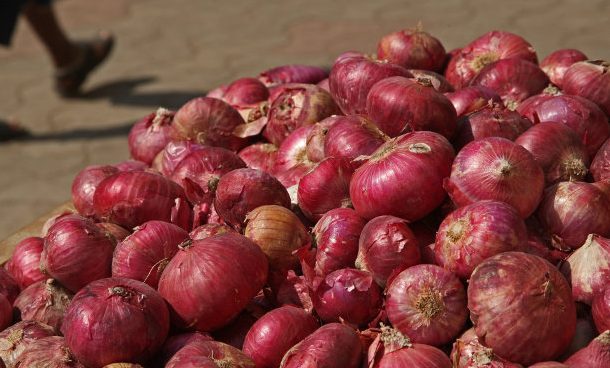Kathmandu: Traders in Nepal have resumed importing onions from India to meet the soaring domestic demand ahead of a festival season, days after the supply was halted following India’s decision to slap a 40 per cent export tax on the vegetable.
Last week, India, the world’s biggest exporter of onions, imposed a 40 per cent tariff on the export of the vegetable till December 31 to restrict overseas sales.
The move reportedly came amid an anticipation of a price rise ahead of the festival season when demand for most commodities goes up.
The new tariff had severely affected Nepal as several traders in the Kalimati Fruit and Vegetable Market – the Himalayan nation’s largest wholesale market for agricultural products – reported a sudden scarcity of onions. Nepal imports 99 per cent of its onion requirements from India.
Traders in Nepal imported 265 tonnes of onions from India in the last 48 hours which helped resume smooth supply of the vegetable ahead of the festival season.
Wednesday, 120 tonnes of onions were imported from India, and Thursday, 145 tonnes came till noon, said Binaya Shrestha, spokesperson at the Kalimati Fruits and Vegetable Market Development Board.
Wholesale price of onions has been fixed at Rs. 75 per kg after the tax adjustment, he said.
The traders had halted the import of onions Monday and Tuesday after India imposed the export duty on the vegetable.
The price of onions which was sold at Rs. 70 per kg in the retail market has now jumped to Rs. 100 after the imposition of export tax.
However, the supply has become smooth, there is no shortage of onions in the market even though the traders have started hoarding the vegetable after India announced the tariff.
The Customer Protection Division under the Ministry of Industry, Commerce and Supplies has intensified market monitoring activities over the last week following complaints from some consumer groups about shortage and price hikes of onions.
In the last four days, market monitoring was conducted at more than 30 places, said Ghanashyam Subedi, director of the division.
He said those found to be charging unreasonably higher prices have been fined as per the consumer protection laws.
PTI
